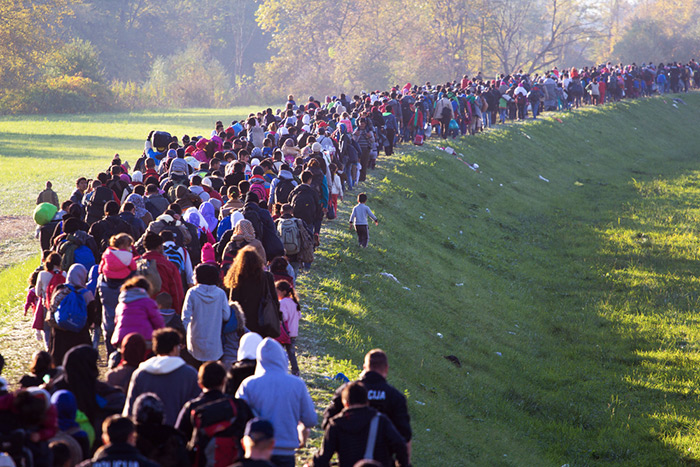Why Are People on the Move?

What would you take with you if you suddenly had to move?
A photo? Cell phone? Passport?
#TakeItOTM
When moving, how do you cope with your new surroundings?
Move in with family? Join a local religious organization?
#CopingOTM
Conversations about migration and immigration often focus more on ideology and rhetoric than on actual experiences. Through the American Anthropological Association’s World on the Move: 100,000 Years of Human Migration, we’re trying to change that by helping people understand how we all create borders in our lives with attitudes and misconceptions of “the other.” And although each of our stories are unique, we are all part of a larger migration story that defines humanity.
What happens to people when they move? What happens to the host cultures and the cultures they leave behind? How do others respond, and how might we respond more constructively?
So much depends on the reasons why people move. The reasons people migrate from one area to another are quite numerous:
- Filling jobs as a globalized world changes the economy of nations and the demand for workers from other countries increases. Migrant workers come from impoverished areas with limited or no resources for employment, education, or health care, and they often send the income they earn back to their families and loved ones at home.
- Shifting from developing countries to nations with more economic opportunities, or internally from rural communities to urban areas.
- Displacement resulting from coercive purposes such as enslavement or trafficking.
- Refuge from political conflicts, mass violence, or persecution.
- Changes in environments or natural disasters.
- Traveling for religious devotions or leisure.
At the 2016 Folklife Festival, we’ll be in On The Move: Migration and Immigration Today tent June 29 at 1 p.m. and July 7 at 2 p.m. asking visitors about what objects they would take with them if they suddenly had to move. On July 4 at noon and July 10 at 1 p.m., we’ll ask visitors how they would cope if they found themselves in new surroundings.
Meanwhile, tweet your responses with the hashtags above to @AmericanAnthro. We’ll share tweets at our On the Move sessions and in later blog posts.
Upcoming Event
Elzbieta M. Gozdziak, research professor for the Institute for the Study of International Migration at Georgetown University, will read selections from her latest book, Trafficked Children and Adolescents in the United States: Reimagining Survivors on June 7, 7 to 9 p.m. at Busboys and Poets in northeast Washington, D.C. The free event is part of AAA’s World on the Move: 100,000 Years of Human Migration program. RSVP here.
This guest blog post was written by Leslie Walker, project manager for the Public Education Initiative at the American Anthropological Association.

